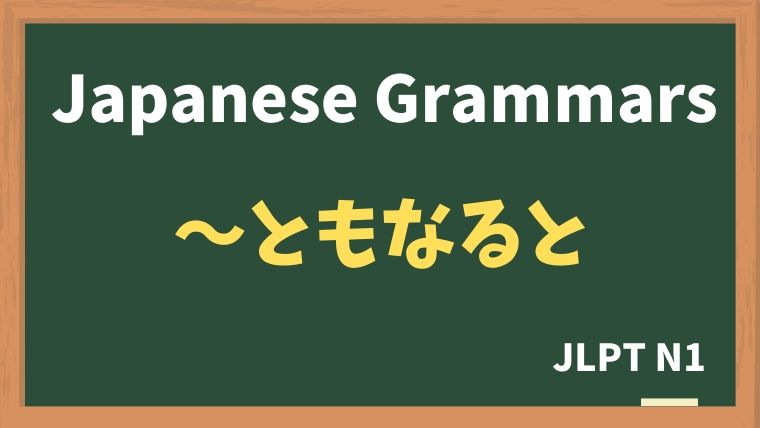
Explanation:〜ともなると / 〜ともなれば
fa-check-circleMeaning
"〜という状況になると / 〜という立場になると / 〜という場合になると"
Used to indicate that when a certain situation, time, or condition is reached, something significant or inevitable will occur. They often highlight the change in expectations or responsibilities that come with reaching a certain level, age, or status. In English, these expressions are often translated as "once (someone/something) becomes" or "when it comes to."
fa-check-circleForm
V(dictionary form) + ともなると / ともなれば
N + ともなると / ともなれば
fa-check-circlePoints
- Change or Shift in Situation: These expressions signal that when a certain time or situation arrives, a notable change or a set of expectations will follow.
- Highlighting Increased Responsibility or Pressure: Often used to emphasize that reaching a certain point, status, or condition brings new challenges, responsibilities, or consequences.
- Formal and Natural Tone: Both "〜ともなると" and "〜ともなれば" can be used in both formal and casual settings, although they carry a slightly formal or literary tone.
fa-check-circleJLPT Level
N1
Sample sentenes
9月ともなれば、だいぶ涼しくなるね。
By September, it becomes quite a bit cooler.
結婚式ともなれば、きちんとした格好で行かないと恥をかくよ。
When it comes to weddings, if you don’t dress properly, you’ll end up embarrassed.
20代後半ともなれば、転職すべきか、このまま今の仕事を続けるべきか悩む。
By the late 20s, you start to worry about whether to change jobs or continue with your current one.
国際結婚ともなると、きちんと両親の理解を得なけれえばならないだろう。
When it comes to international marriage, you probably need to ensure you have your parents' understanding.
試験も2回目となるとだいぶ楽だ。
By the second exam, it becomes considerably easier.
連休ともなると、渋滞がすごい。
When it’s a long holiday, traffic congestion is severe.
大勢の人の前でスピーチとなれば、やっぱり緊張する。
When it comes to giving a speech in front of a large audience, you still get nervous.






